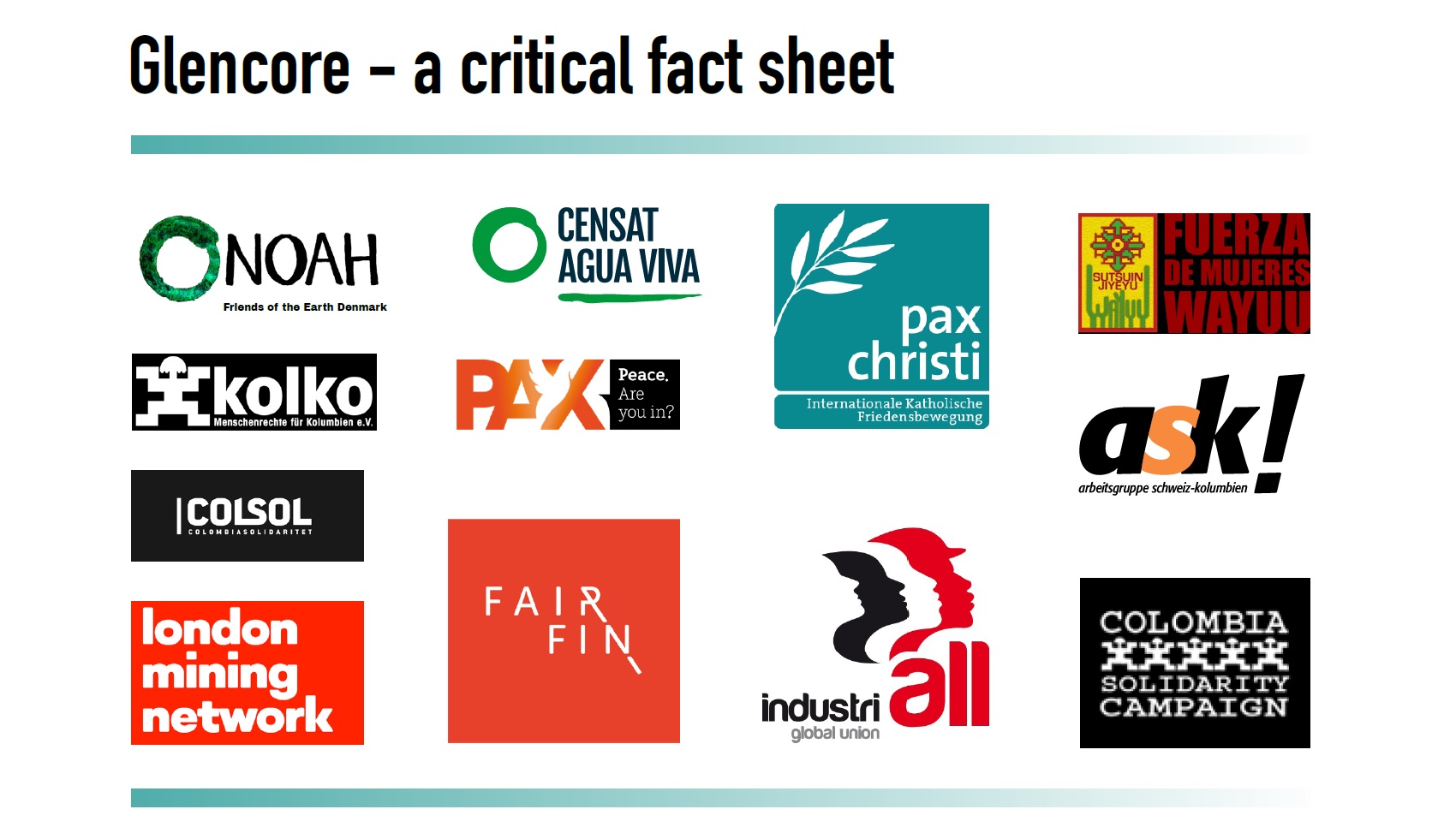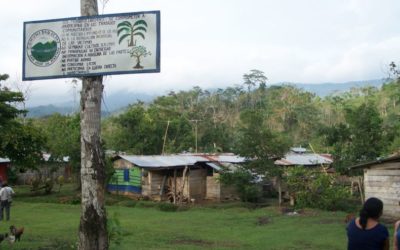GLENCORE – A CRITICAL FACT SHEET
The Swiss mining giant Glencore describes itself as a vertically-integrated natural resource company. It is involved at every stage of the supply chain of its products, from extraction and processing through to marketing and trading. As Glencore has reached its current position as one of the biggest companies in the world, its business model continues to have severe consequences for the surrounding population and environment. Here follows an overview of Glencore’s recent malpractices.
Basic facts:
- Copper, nickel and cobalt, coal, oil, agricultural products, and more
- Headquarters in Baar, Switzerland
- Operations in over 35 countries, managed through a network of subsidiaries
- Current company created through a merger of Glencore with Xstrata in 2013
- Listed on the London Stock Exchange since 2011, with a secondary listing on the Johannesburg Stock Exchange since 2013
- Valued at US$ 86.4 billion at the end of 2022
- In top25 of biggest companies by revenue worldwide
Funding repression of affected communities
In the Philippines, Colombia and Peru, there are credible allegations that Glencore and its subsidiaries have funded violent repression of civil society members who oppose its mining projects. In the Philippines, Sagittarius Mines Inc – at the time majority owned by Glencore-Xstrata – bought the rights to develop a copper-gold mine within the land of the B’laan, one of the indigenous communities of Southern Mindanao. The B’laan organised against the occupation of their land, and in response Glencore-Xstrata are alleged to have created and bankrolled a secret paramilitary unit in 2012, that terrorised the community, murdering tribal leaders and their families for opposing the mine.
Similar allegations have been leveled against Colombian mining group Prodeco, which is wholly owned by Glencore. Former Prodeco personnel and paramilitary commanders have stated that Prodeco, along with another mining company in the region (U.S.-based Drummond), financed and collaborated with paramilitary death squads that murdered people in the way of expanding mining operations, resulting in 3,100 deaths and tens of thousands of displaced persons in the years 1996-2006. Following the paramilitary onslaught, the lands of displaced communities often passed into the hands of mining companies through irregular (bad faith) acquisitions. More recently, it was revealed that Prodeco had at least three contracts with the Colombian armed forces between 2015-2019 that would provide ”special attention” to the area around Prodeco’s mines and that the company paid a total of $316,000 for that service.
Read on:
https://www.kolko.net/wp-content/uploads/2023/06/EU-NGOs_2023-05_factsheet_Glencore_WEB.pdf



